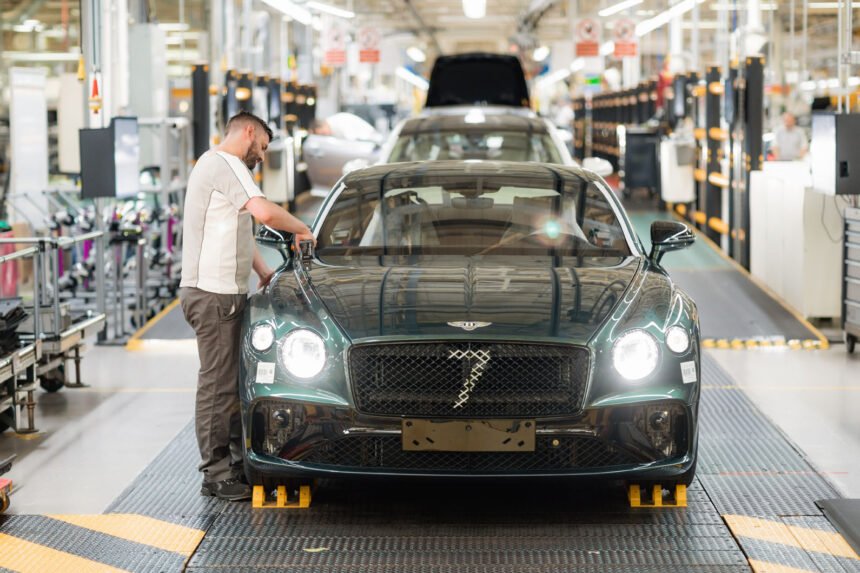The recent agreement to reduce tariffs on UK car exports into the US has been welcomed by industry leaders and car manufacturers alike. Mike Hawes, the boss of the Society of Motor Manufacturers and Traders, expressed his relief at the news, stating that the removal of these tariffs will provide much-needed relief for the UK automotive industry and its workforce.
This development marks a significant reversal from Trump’s earlier decision to penalize all car makers importing vehicles into the US market. Trump had cited the imbalance of American-made car sales in other markets as the reason for imposing these tariffs, with the aim of boosting growth in the US automotive industry. With approximately eight million cars imported into the US last year, half of which came from countries like Mexico, Canada, Germany, and Japan, the impact of these tariffs was substantial.
For UK car manufacturers like Jaguar Land Rover (JLR), the US market is crucial, with 130,000 cars being sent there in 2024. The news of reduced tariffs will come as a relief to JLR, which had temporarily paused shipments to the US in response to the new trading terms. JLR CEO Adrian Mardell expressed gratitude for the swift agreement between the UK and US governments, highlighting the importance of the car industry in sustaining jobs and economic prosperity in the UK.
Mini, known for its popular Mini Cooper hatchback, will also benefit from the tariff reduction, particularly as US sales have nearly doubled this year. While the Mini Cooper is produced in Oxford, the Countryman SUV, which has seen growth in the US market, is manufactured in Germany and remains subject to the 25% tariff.
Despite these positive developments, tariff negotiations between the EU (of which Germany is a member) and the US are still ongoing. The outcome of these negotiations will have implications for the future of trade relations between the two regions.
Overall, the agreement to reduce tariffs on UK car exports to the US represents a significant win for the automotive industry and signals a more positive outlook for manufacturers and consumers alike. The swift resolution of this issue demonstrates the importance of collaboration between governments in supporting key sectors like automotive manufacturing.







